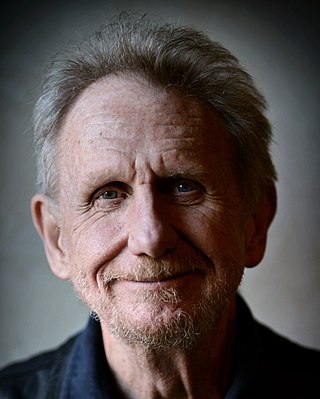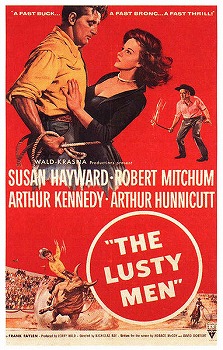
Robert Bernard Altman was an American film director, screenwriter, and producer. He was a five-time nominee of the Academy Award for Best Director and is considered an enduring figure from the New Hollywood era. His most famous directorial achievements include M*A*S*H (1970), McCabe & Mrs. Miller (1971), The Long Goodbye (1973), Nashville (1975), 3 Women (1977), The Player (1992), Short Cuts (1993), Gosford Park (2001), and The Company (2003).

McCabe & Mrs. Miller is a 1971 American revisionist Western film directed by Robert Altman and starring Warren Beatty and Julie Christie. The screenplay by Altman and Brian McKay is based on the 1959 novel McCabe by Edmund Naughton. Altman referred to it as an "anti-Western" film because it ignores or subverts a number of Western conventions. It was filmed in British Columbia, Canada in the fall and winter of 1970, and premiered on June 24, 1971.

The NRG Astrodome, formerly and also known as the Houston Astrodome or simply the Astrodome, was the world's first multi-purpose, domed sports stadium, located in Houston, Texas, United States. It sat around 50,000 fans, with a record attendance of 68,266 set by George Strait in 2002.

René Marie Murat Auberjonois was an American actor, best known for playing Odo on Star Trek: Deep Space Nine (1993–1999) and Clayton Endicott III on Benson (1979-1986).

Marilyn Burns was an American actress. She was known for playing Sally Hardesty in Tobe Hooper's horror film The Texas Chain Saw Massacre (1974), which established her as a scream queen and a catalyst of the final girl trope. She was involved in two more films of its resulting franchise: a cameo in The Return of the Texas Chainsaw Massacre (1995) and a supporting role in Texas Chainsaw 3D (2013). In 2009, she was inducted into the Horror Hall of Fame at the Phoenix Film Festival.

Sally Clare Kellerman was an American actress whose acting career spanned 60 years. Her role as Major Margaret "Hot Lips" Houlihan in Robert Altman's film M*A*S*H (1970) earned her an Academy Award nomination for Best Actress in a Supporting Role. After M*A*S*H, she appeared in a number of the director's projects, namely the films Brewster McCloud (1970), Welcome to L.A. (1976), The Player (1992), and Prêt-à-Porter (1994), and the short-lived anthology TV series Gun (1997). In addition to her work with Altman, Kellerman appeared in films such as Last of the Red Hot Lovers (1972), Back to School (1986), plus many television series such as The Twilight Zone (1963), The Outer Limits, Star Trek (1966), Bonanza, The Minor Accomplishments of Jackie Woodman (2006), 90210 (2008), Chemistry (2011), and Maron (2013). She also voiced Miss Finch in Sesame Street Presents: Follow That Bird (1985), which went on to become one of her most significant voice roles.

Shelley Alexis Duvall was an American actress and producer. Known for her collaborations with Robert Altman and for playing eccentric characters, she won a Cannes Film Festival Award and was nominated for a British Academy Film Award and two Emmy Awards. Four of her films are preserved in the National Film Registry by the Library of Congress.

Michael George Murphy is an American film, television and stage actor. He often plays unethical or morally ambiguous characters in positions of authority, including politicians, executives, administrators, clerics, doctors, law enforcement agents, and lawyers. He is also known for his frequent collaborations with director Robert Altman, having appeared in twelve films, TV series and miniseries directed by Altman from 1963 to 2004, including the title role in the miniseries Tanner '88. He had roles in the films Manhattan, An Unmarried Woman, Nashville, The Year of Living Dangerously, Phase IV, The Front, Shocker, Magnolia, Cloak & Dagger, Salvador, Away from Her, Strange Behavior, Fall, X-Men: The Last Stand, M*A*S*H and Batman Returns, among others.

3 Women is a 1977 American psychological drama film written, produced and directed by Robert Altman and starring Shelley Duvall, Sissy Spacek and Janice Rule. Set in a dusty California desert town, it depicts the increasingly bizarre relationship between an adult woman (Duvall), her teenage roommate and co-worker (Spacek) and a middle-aged pregnant woman (Rule).

Devil in a Blue Dress is a 1995 American neo-noir mystery thriller film written and directed by Carl Franklin, based on Walter Mosley's 1990 novel of the same name and features Denzel Washington, Tom Sizemore, Jennifer Beals, and Don Cheadle. Set in 1948, the film follows World War II veteran Ezekiel "Easy" Rawlins who, desperate in need of a job, becomes drawn into a search for a mysterious woman.

Images is a 1972 psychological horror film directed and co-written by Robert Altman and starring Susannah York, René Auberjonois and Marcel Bozzuffi. The picture follows an unstable children's author who finds herself engulfed in apparitions and hallucinations while staying at her remote vacation home.

The Lusty Men is a 1952 neo-Western film released by Wald-Krasna Productions and RKO Radio Pictures starring Susan Hayward, Robert Mitchum, Arthur Kennedy and Arthur Hunnicutt. The picture was directed by Nicholas Ray and produced by Jerry Wald and Norman Krasna from a screenplay by David Dortort and Horace McCoy, with uncredited contributions by Alfred Hayes, Andrew Solt, and Wald, that was based on the novel by Claude Stanush. The music score was by Roy Webb and the cinematography by Lee Garmes.

Night Game is a 1989 American slasher film directed by Peter Masterson and starring Roy Scheider, Lane Smith, Karen Young, and Richard Bradford. It follows a police detective attempting to stop a hook-handed serial killer whose murders coincides with nighttime baseball games at the Houston Astrodome.

Herbert Birchell "Bert" Remsen was an American actor and casting director. He appeared in numerous films and television series.

M*A*S*H is a 1970 American black comedy war film directed by Robert Altman and written by Ring Lardner Jr., based on Richard Hooker's 1968 novel MASH: A Novel About Three Army Doctors. The film is the only theatrically released feature film in the M*A*S*H franchise.
Doran William Cannon (1937–2005) was an American writer and producer for film and television.
Lou Lombardo was an American filmmaker whose editing of the 1969 film The Wild Bunch has been called "seminal". In all, Lombardo is credited on more than twenty-five feature films. Noted mainly for his work as a film and television editor, he also worked as a cameraman, director, and producer. In his obituary, Stephen Prince wrote, "Lou Lombardo's seminal contribution to the history of editing is his work on The Wild Bunch (1969), directed by Sam Peckinpah. The complex montages of violence that Lombardo created for that film influenced generations of filmmakers and established the modern cinematic textbook for editing violent gun battles." Several critics have remarked on the "strange, elastic quality" of time in the film, and have discerned the film's influence in the work of directors John Woo, Quentin Tarantino, Kathryn Bigelow, and the Wachowskis, among others. While Lombardo's collaboration with Peckinpah lasted just a few years, his career was intertwined with that of director Robert Altman for more than thirty years. Lombardo edited Altman's 1971 film McCabe & Mrs. Miller (1971), which had "a radical approach to the use of dialogue and indeed other sound, both in and beyond the frame." Towards the end of his career Lombardo edited Moonstruck (1987) and two other films directed by Norman Jewison. While his editing is now considered "revolutionary" and "brilliant", Lombardo was never nominated for editing awards during his career.

Walter Edward Cox, known professionally as Bud Cort, is an American actor known for his unorthodox starring roles in Robert Altman's Brewster McCloud (1970) and Hal Ashby's Harold and Maude (1971). He also had supporting roles in films such as M*A*S*H (1970), Electric Dreams (1984), Heat (1995), Dogma (1999), Coyote Ugly (2000) and The Life Aquatic with Steve Zissou (2004).















